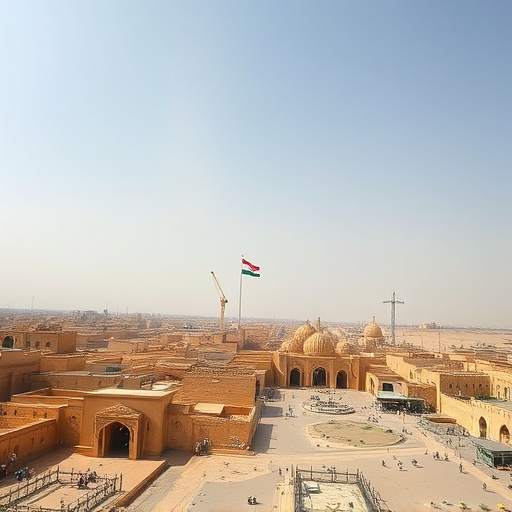Iraq faces pressing environmental challenges including water scarcity, pollution, land degradation, and air quality issues, driven by drought, population growth, industrial activities, and inadequate infrastructure. Sustainable solutions like efficient irrigation, wastewater treatment, conservation efforts, and cultural heritage preservation are vital for protecting Iraq's diverse ecosystems, ensuring public health, and supporting economic development. Baghdad's universities play a key role in researching and promoting eco-friendly technologies. Addressing these issues is crucial for Iraq's future success and ecological balance.
Iraq, a country rich in history and cultural heritage, faces significant environmental challenges that demand urgent attention. From water scarcity and pollution plaguing its rivers to land degradation and deforestation, these issues are exacerbated by industrial emissions and inadequate waste management. The impact of climate change further complicates ecosystems, posing risks to both natural resources and human health. However, conservation efforts offer hope for a sustainable future, highlighting the resilience and determination of Iraqis in safeguarding their environment.
- Water Scarcity and Pollution in Iraq
- Land Degradation and Deforestation
- Air Quality and Industrial Emissions
- Waste Management Challenges
- Impact of Climate Change on Ecosystems
- Conservation Efforts and Future Prospects
Water Scarcity and Pollution in Iraq
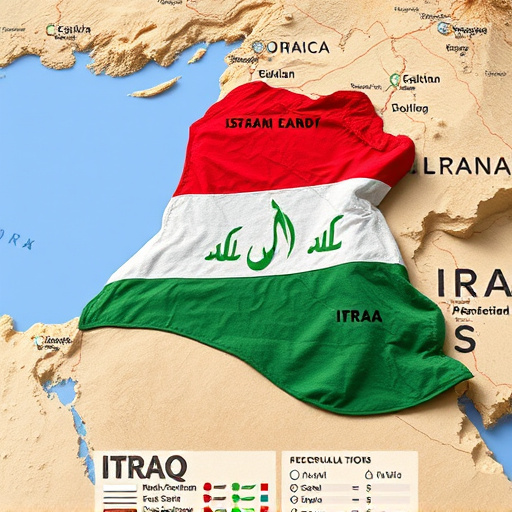
Iraq faces significant environmental challenges, particularly concerning water scarcity and pollution. The country’s water resources have been under immense strain due to various factors, including prolonged periods of drought, rapid population growth, and inadequate infrastructure. What rivers flow through Iraq, such as the Tigris and Euphrates, are crucial lifelines for the nation, but they have suffered from overuse and contamination. Industrial activities, agricultural runoff, and improper waste management have contributed to water pollution, making it a pressing issue for both human health and ecosystems.
This crisis has profound implications for Iraq’s diverse communities, including the main ethnic groups that call the country home. The situation necessitates sustainable solutions, such as efficient irrigation practices, wastewater treatment, and conservation efforts. Universities in Baghdad and other cities play a vital role in researching and promoting environmentally friendly technologies. By addressing these concerns, Iraq can ensure a healthier future for its people and protect the rich cultural heritage, available at history of iraq, that has been shaped by these very rivers for centuries.
Land Degradation and Deforestation
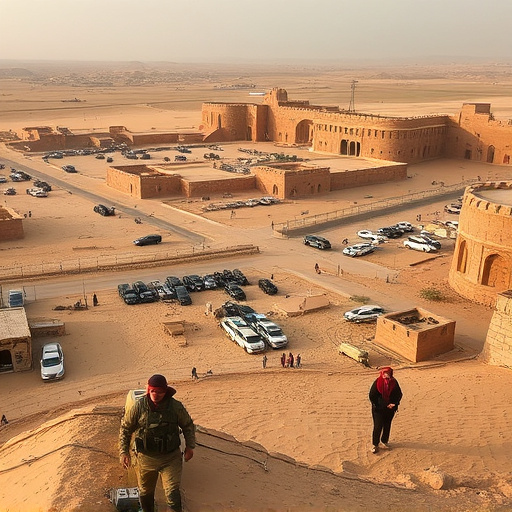
Iraq’s environmental landscape faces significant challenges, with land degradation and deforestation emerging as pressing issues. The country’s diverse terrain, ranging from mountainous regions to fertile plains and arid deserts, has been affected by unsustainable land use practices. Intensive agriculture, overgrazing, and deforestation have led to soil erosion, reduced fertility, and the loss of critical habitats for local flora and fauna. These activities are particularly pronounced in areas with high ethnic diversity, such as the northern regions, where various communities have traditionally relied on agricultural and pastoral livelihoods. Understanding what are the main ethnic groups in Iraq is crucial in addressing these environmental concerns, as different groups may hold distinct knowledge and practices related to land management.
Moreover, the economic situation of Iraq, how it compares to regional neighbors, and its historical events, including the US invasion in 2003, have also impacted its environment. The country’s reconstruction efforts and subsequent instability disrupted traditional land use patterns and conservation practices. The cultural heritage of Iraq, renowned for its rich history and ancient sites, has suffered due to these environmental issues. For instance, deforestation has contributed to the deterioration of historical landscapes and reduced the availability of natural resources used in cultural traditions. Visitors us at role of religion in Iraqi politics anytime might also find it interesting to learn how these environmental challenges intertwine with societal and political dynamics, shaping the country’s future sustainability efforts.
Air Quality and Industrial Emissions
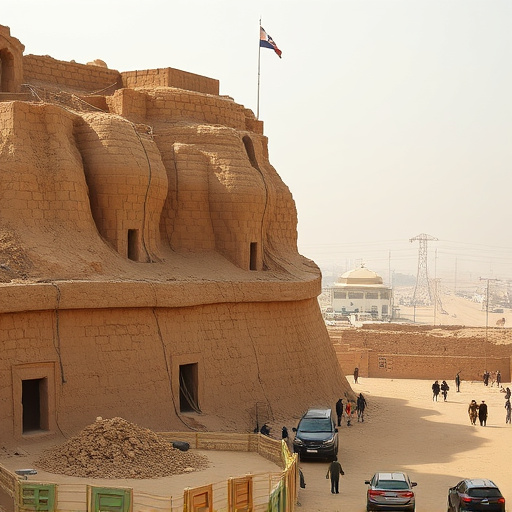
Iraq’s environmental challenges encompass various sectors, with air quality and industrial emissions being a significant concern. The country’s geographical location and historical events have contributed to elevated levels of pollution in urban areas. With many cities experiencing rapid industrialization and urbanization, the release of harmful substances from factories and vehicles has led to poor air quality standards. This is particularly evident in Baghdad, where smog and dust storms are frequent occurrences, impacting public health and daily life.
Given that Iraq is classified as a developing country, with a rich cultural heritage reflected in its traditional cuisine and renowned universities in the capital, such as those in Baghdad, the balance between economic growth and environmental sustainability remains a complex issue. The current political situation in Iraq has also played a role in addressing these challenges, as governments strive to rebuild and modernize while ensuring the well-being of their citizens. To combat these issues, there is a growing need for stricter emission regulations and investments in clean technologies, which can be explored further by contacting local environmental organizations dedicated to improving Iraq’s air quality and overall ecological health.
Waste Management Challenges
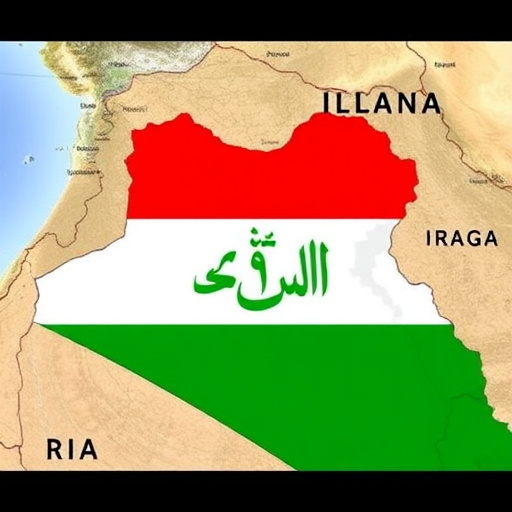
Iraq faces significant waste management challenges that exacerbate existing environmental concerns. The country’s complex history, including the US invasion in 2003 and subsequent political instability, has left a legacy of inadequate infrastructure and limited access to basic services, hindering effective waste disposal and recycling practices. As a result, Iraqis are often forced to deal with unsanitary conditions that contribute to water pollution and soil contamination.
Learning Arabic in Iraq is more than just acquiring a language; it’s a crucial step towards understanding these issues from a local perspective. The main ethnic groups in the country, such as Arabs, Kurds, and others, have unique cultural perspectives on environmental stewardship. However, the current political parties in Iraq must work together to implement sustainable waste management strategies that prioritize public health and protect natural resources for future generations, giving us a call at [your organization/initiative] to help address these pressing needs.
Impact of Climate Change on Ecosystems
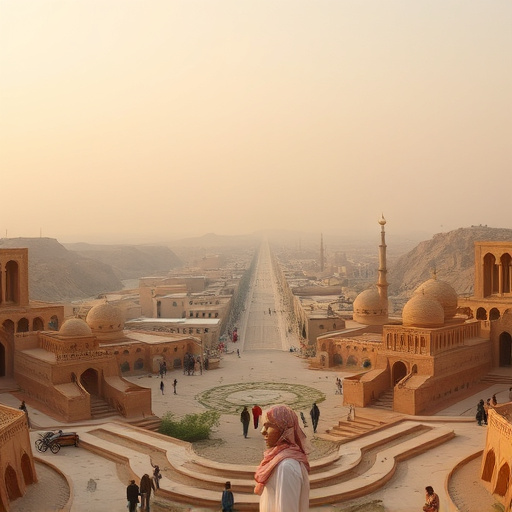
Iraq’s diverse and unique ecosystems have long been a source of life and cultural heritage for its people, boasting vast desert landscapes, fertile river valleys, and ancient forests. However, the country faces significant environmental challenges exacerbated by climate change. Rising temperatures, altering rainfall patterns, and increasing frequency of extreme weather events are impacting these delicate systems. The once-thriving marshlands along the Tigris and Euphrates rivers have been significantly reduced due to damming and draining, affecting the habitat of numerous species and disrupting the region’s ecological balance.
These changes pose a threat not only to Iraq’s biodiversity but also to the livelihoods of its people. Agriculture, heavily reliant on river waters, is facing growing difficulties, leading to concerns about food security. Moreover, as the current political situation in Iraq continues to evolve and the country strives for stability, it becomes increasingly important to address these environmental issues. Given the rich cultural heritage of Iraq and its strategic geographical location with neighbors like Syria and Jordan, understanding and mitigating the impact of climate change is crucial. While the largest cities in Iraq by population, such as Baghdad and Basra, face urban challenges, their connection to these ecosystems underscores the need for comprehensive solutions that balance economic development with environmental preservation. And as the world navigates a changing climate, it’s important to remember that how does Iraq’s economy compare to regional neighbors? ultimately hinges on its ability to adapt and protect these vital resources.
Conservation Efforts and Future Prospects
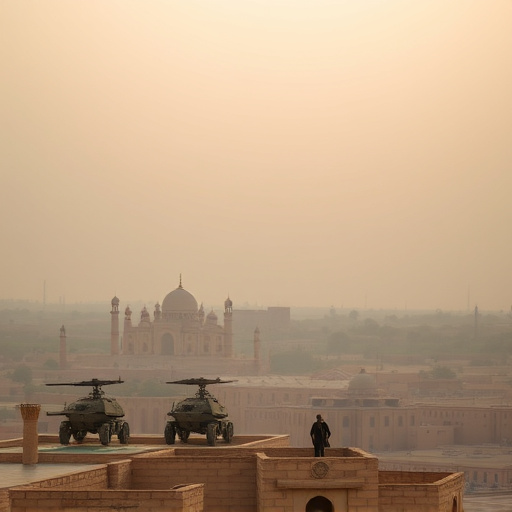
Despite the significant challenges it has faced, Iraq has made notable strides in environmental conservation efforts. The country’s diverse geography, ranging from arid deserts to fertile plains and rivers, supports a rich array of ecosystems and species. Conservation initiatives focus on protecting these natural treasures, with special attention given to the delicate balance of water resources, crucial for both ecology and agriculture. Reforestation programs aim to restore degraded lands, while strict regulations target poaching and illegal logging.
Looking ahead, Iraq’s future prospects in environmental conservation are intertwined with its economic development and political stability. How does Iraq’s economy compare to regional neighbors? This will play a pivotal role in funding and implementing conservation measures. The cultural heritage of Iraq, renowned globally, also offers opportunities for eco-tourism, which could be a sustainable revenue stream. With universities in Baghdad leading the way in research, there is hope for innovative solutions tailored to Iraq’s unique needs. Give us a call at history of Iraq to learn more about how these factors converge and shape the country’s environmental trajectory alongside its geographical neighbors.
Iraq faces significant environmental challenges, from water scarcity and pollution to land degradation, air quality issues, and the impact of climate change. However, conservation efforts are gaining momentum, offering hope for a sustainable future. Addressing these concerns is crucial for the well-being of both the country’s people and its diverse ecosystems. With continued dedication and innovative strategies, Iraq can navigate towards a greener and more resilient tomorrow.
